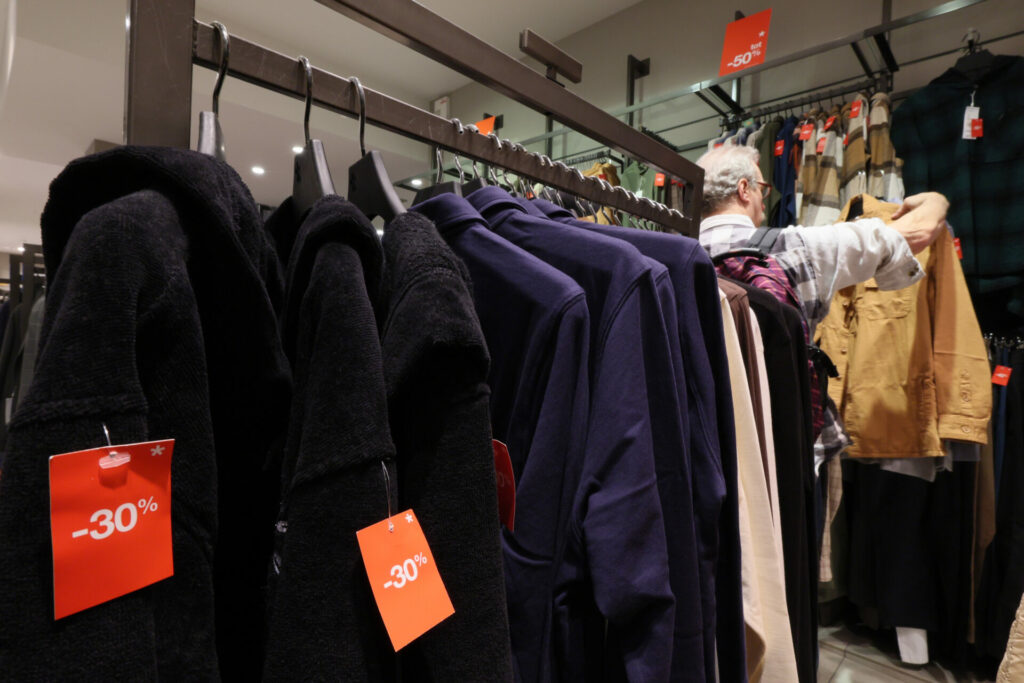Activists from the Fair Fashion Belgium collective have been taking on the giants of the textile industry lining the Chaussée d'Ixelles in Brussels recently.
This strategic move comes as part of a concerted effort by the collective to shed light on the ethical concerns surrounding fast fashion.
Activists have been infiltrating fast fashion stores and have been adding their own stickers to items on offer in the winter sales. Created by the Fair Fashion Belgium collective, these fake labels aim to make consumers pause and reflect before making a purchase.
Each sticker carries the message: "this article has a surprise in store for you", along with a QR code. Contrary to expectations, scanning the code does not reveal an additional promotion. Instead, it redirects users to the collective's webpage, offering insights into why fast fashion and sales are problematic.
The overarching goal of this action is to denounce the social and environmental ramifications of the fast fashion industry. The collective maintains that the campaign is not aimed at small brands trying to sell off stock but rather at the fast fashion giants seizing opportunities to maximise profits during sale periods.
Related News
- Half of Belgians bought and sold second-hand in 2023
- Belgium in Brief: Standing up to the Black Friday marketing monster
- Belgium leads the charge to make hemp the future of sustainable fashion
- Cycling firm Specialized faces protests in Belgium over unpaid wages and severance
This isn't the first anti-sales action by the collective. Last July, over 1000 stickers were strategically placed, and two months later, a gathering of about 50 people at an H&M store demanded improved clothing recycling practices and stricter European legislation against fast fashion.
As the winter sales kick off, more than 3000 of their labels have already found their way onto various fast fashion items across Belgium.
The collective aims to make an even bigger impact in the summer sales which start in July. This forms part of their mission to reshape the narrative around fast fashion, calling for accountability and sustainability in the industry.

